The Plum Village Community would like to express our deep gratitude and honor the life, teachings, and legacy of our beloved Dharma Teacher Tho Ha Vinh (True Great Understanding) in the wake of his passing on the 26th of September, 2025.
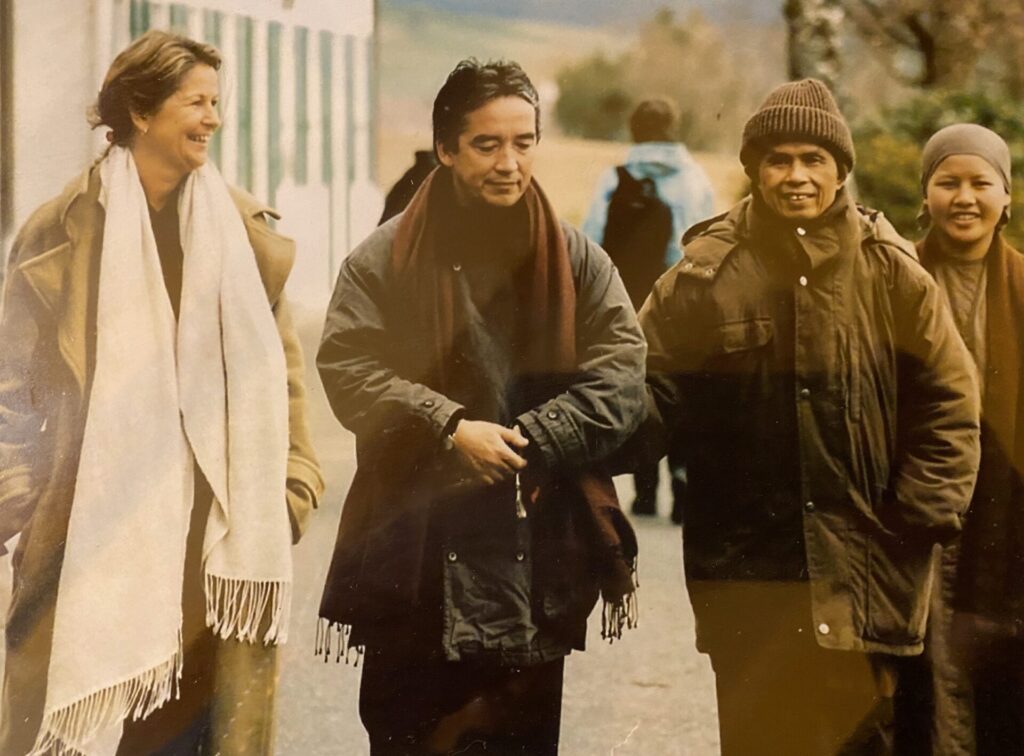
Empathy, compassion, kindness, and generosity can become the foundation of a new social and economic order that will, at the same time, be fair to all those living on the earth today and sustainable for the well-being of future generations.
Tho Ha Vinh, Phd. (Excerpt from his book, A Culture of Happiness)
A letter for Dharma teacher Tho Ha Vinh
Dear Brother True Great Understanding (Chân Đại Tuệ),
The whole of the Plum Village multifold community is breathing for you and with you. In each breath we feel gratitude for your true commitment to the Applied Buddhism that was handed down to you by our beloved teacher Thay (Sư Ông Làng Mai).
We know there is no coming and no going and the wonderful work you have done in Bhutan, Vietnam, Europe and other places as a Plum Village Dharma teacher can never be lost. That work is a beacon of light for true happiness in this world of conflict and grief.
We are committed to continuing the work you have started in helping happy teachers to change the world.
We send our condolences to your collaborater and partner, dear Lisi, Sister Chân Đại Kiều (True Great Bridge). We know that she understands that you are much more than your body and she can continue to be with you in all she does.
With deep gratitude and prayers that you continue in the legacy you have transmitted to us.
Sr. Chan Duc for Sr. Chan Khong and the Plum Village multifold Sangha
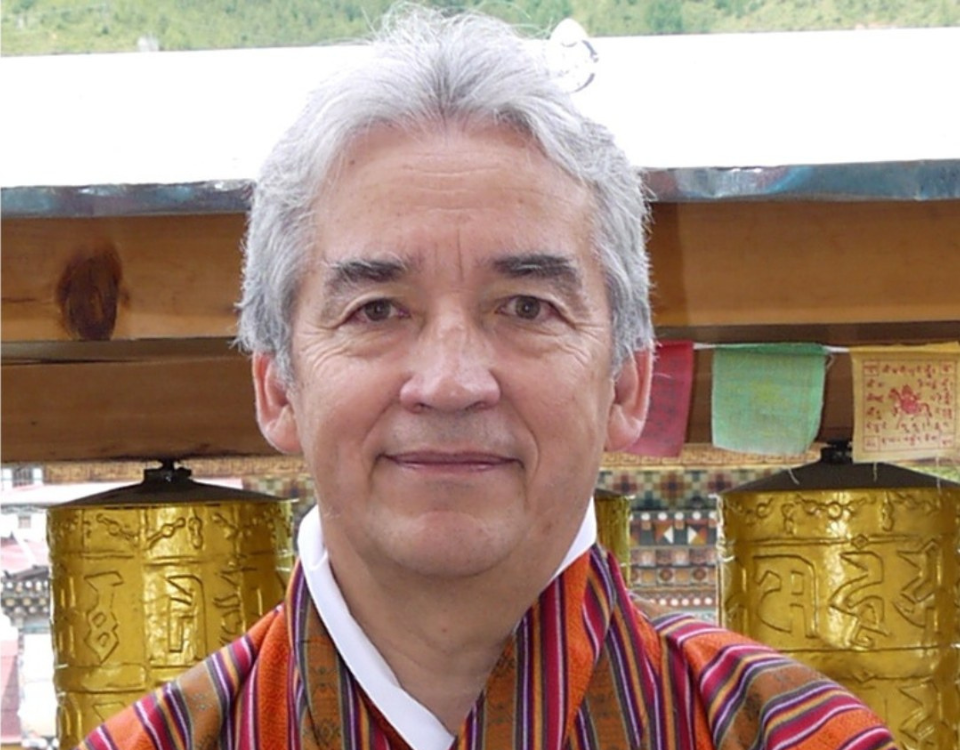
Dr. Tho Ha Vinh, son of a Vietnamese father and a French mother, met Thay in the late eighties. He was profoundly touched and inspired by Thay’s teachings and the Plum Village practices and wove them into all aspects of his life, both personally and professionally. He was the program director of the Gross National Happiness Center (GNH) of the country of Bhutan from 2012 to 2018, demonstrating how the principles of happiness can and must apply to individuals, families, communities, and societies in order to produce the conditions for a truly satisfying life. A lifelong educator, he was deeply committed to training humanitarian professionals working in war zones and emergency response in areas of conflict around the world. He truly embodied his Dharma name – True Great Understanding – comprehending the reality of interbeing, non-self, and the wisdom of non-discrimination.
Here we share two excerpts from his 2009 article, War, Conflict, and Healing in Issue No. 50 of the Mindfulness Bell, which are still deeply relevant today, as our world faces increased divisiveness and polarization.
Developing the Great Compassion
I work in the field of humanitarian action; I train young people to help civil populations, war prisoners, the wounded and the sick in situations of war, armed conflict, and natural catastrophe.
Although neutrality and impartiality are the very guiding principles of true humanitarian action, it is often difficult to maintain this attitude when confronted with the harsh reality of violent conflict. To refuse to take a stand and to maintain an attitude of neutrality can be perceived as a lack of courage or lucidity. Indeed, how not to take sides for the weak against the strong, for the victim against the perpetrator?
I will argue that meditation on the universal law of interdependence, on non-self and on the nature of suffering, is the foundation of the Great Compassion which allows us to develop an attitude of neutrality which is not cowardice and of impartiality which is not indifference.
In the current world situation, characterized by the confrontation of cultures, religions and civilizations, it is more than ever necessary to develop non-attachment to opinions and to wrong perceptions. The Buddha teaches skillful means allowing lifelong learning, and an attitude of tolerance and authentic opening.
Meditation and Mindfulness
True insight into the nature of suffering, interdependence, and non-self can bring about peace, reconciliation, and healing, but it cannot come from intellectual reasoning alone. It needs to be nourished by life experience, by mindfulness in everyday life, by meditation.
Meditation is not about turning away from reality and dwelling in an illusionary inner peace, ignoring the suffering that so many people and other living beings experience day after day.
Meditation is looking deeply into reality as it is, both in us and around us. It is training ourselves not to react immediately with sympathy or antipathy: I like, I dislike, I want, I don’t want, I grasp, I reject.
But rather to create an open space, free of judgment, free of notions and preconceived ideas, allowing reality to unfold and reveal itself in our heart and mind. By doing this, insight and compassion arise naturally, effortlessly, for they are the very nature of our deeper being.
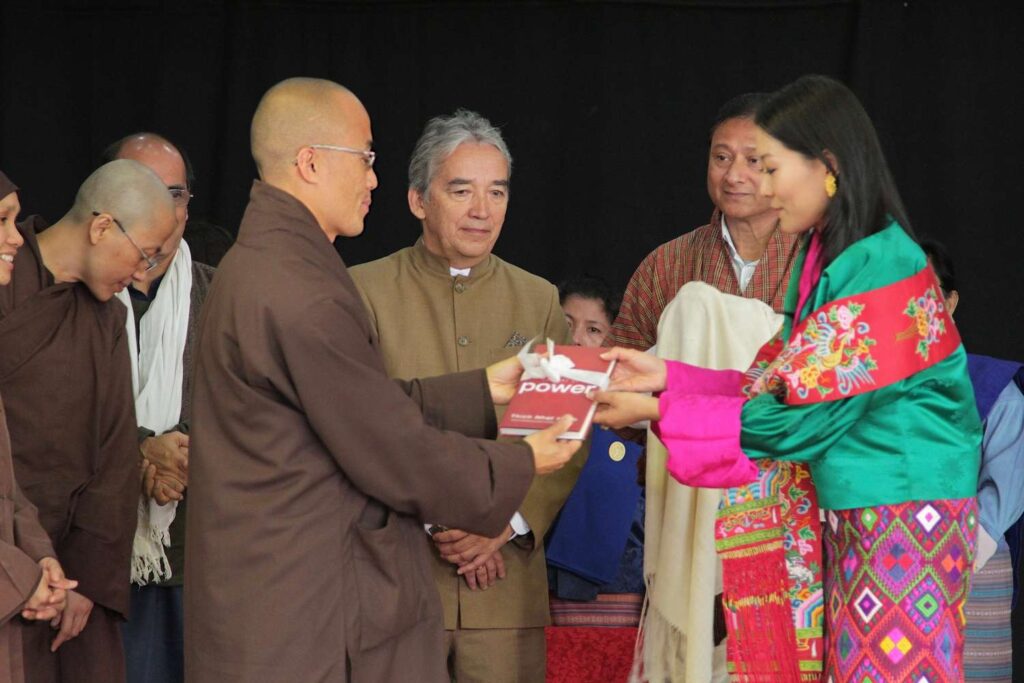
If we awaken to the reality of interbeing and non-self, we awaken to the wisdom of non-discrimination. This is the wisdom that can break the barrier of individualism; with this wisdom we see that we are the other person and the other person is ourself. The happiness of the other person is our own happiness, and our own happiness is the happiness of the other people, plants, animals, and even minerals. This is not only true on a personal level; it is also true for communities, countries, religions, and civilizations.
Tho Va Hinh (True Great Understanding)
Resources
- Meeting My Teacher
- A Culture of Happiness
- Resilience, Community, and Spirituality (Part One)
- Resilience, Community, and Spirituality (Part Two)
- Mindfulness Is a Source of Happiness
- War, Conflict and Healing
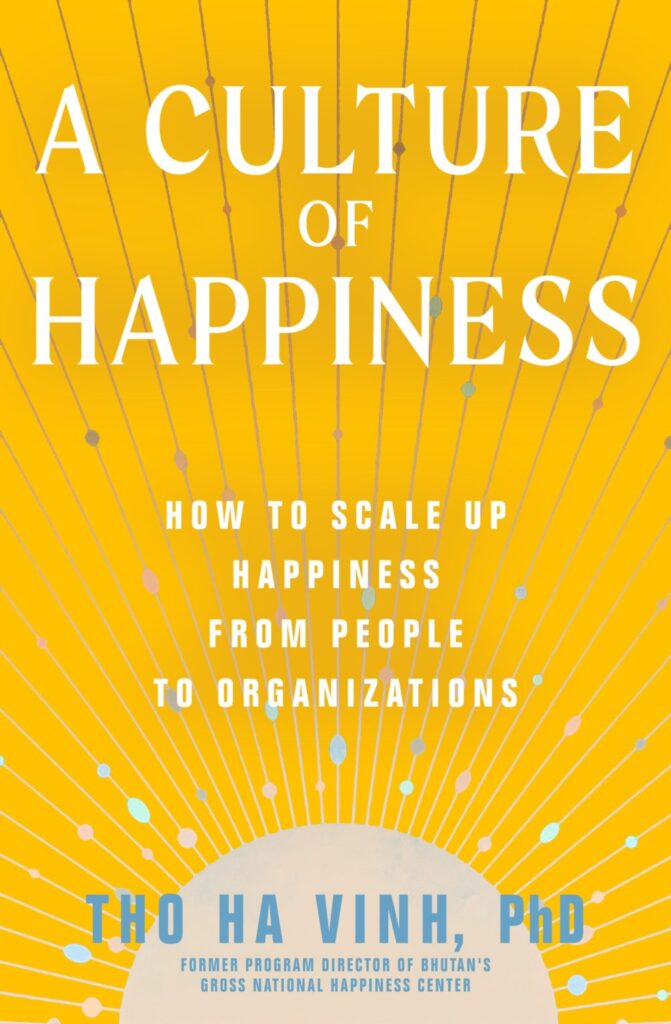


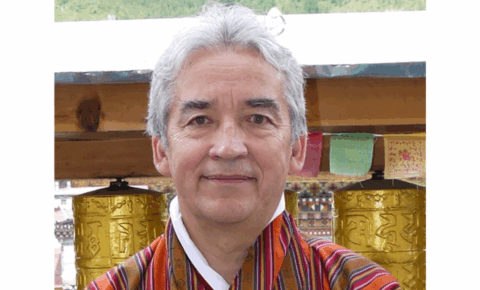
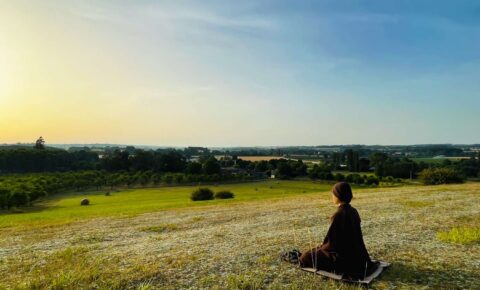
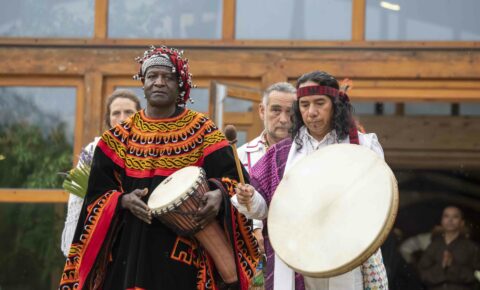
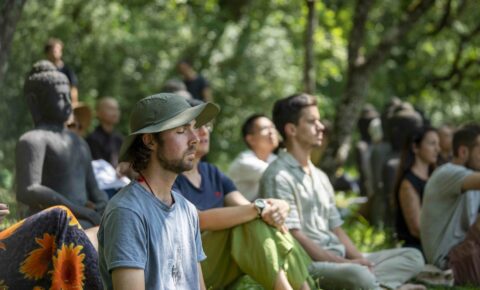
Share Your Reflections